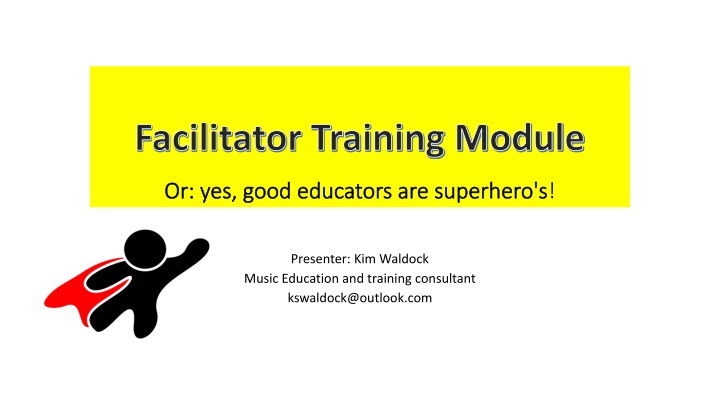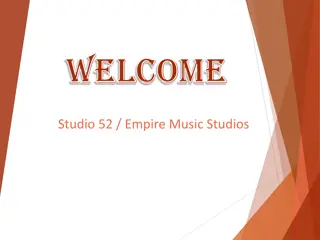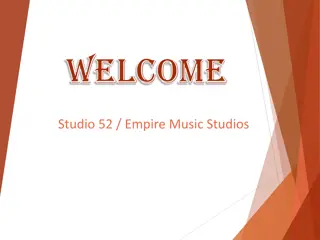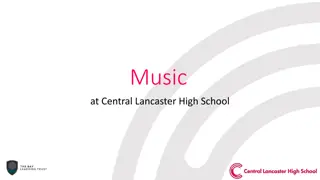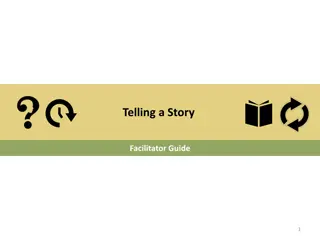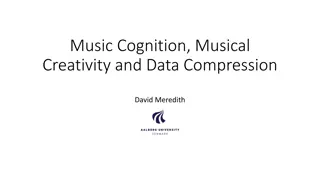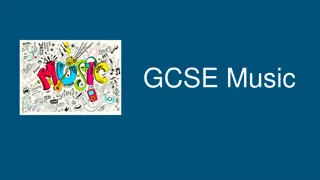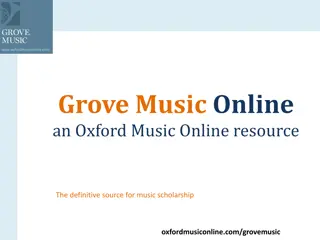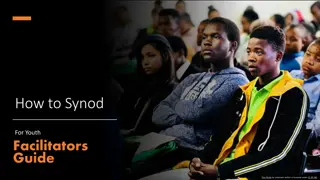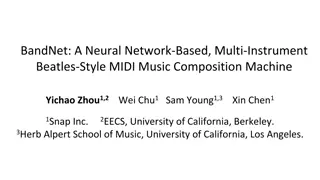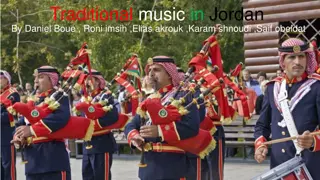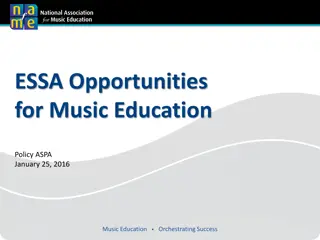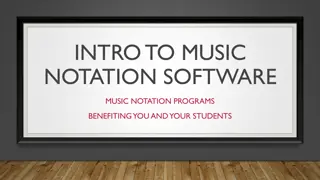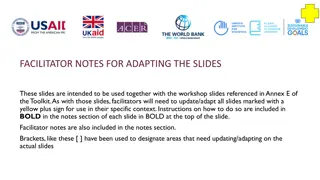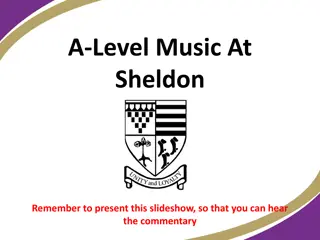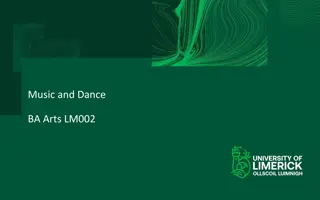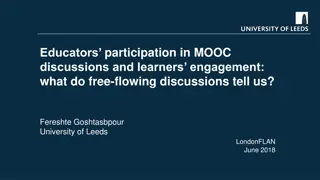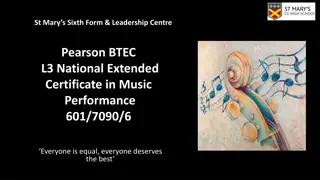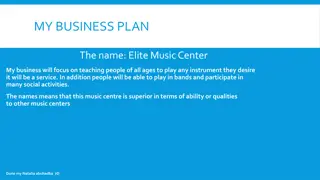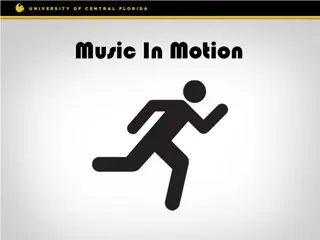Empowering Educators: Facilitator Training and Music Education Workshop
Unleash the superhero within every educator with a training module led by Kim Waldock, a music education consultant. Explore the essence of effective educators, address CPD needs for musicians in education, delve into core planning skills, and challenge assumptions about learning. Engage in interactive activities like learning action songs and silly warm-up routines to further enhance instructional practices. Elevate your facilitation skills through a strategic process of planning, evaluating, preparing, and presenting in workshop sessions. Let's inspire and empower educators to become real-life superheroes in the classroom!
Download Presentation

Please find below an Image/Link to download the presentation.
The content on the website is provided AS IS for your information and personal use only. It may not be sold, licensed, or shared on other websites without obtaining consent from the author.If you encounter any issues during the download, it is possible that the publisher has removed the file from their server.
You are allowed to download the files provided on this website for personal or commercial use, subject to the condition that they are used lawfully. All files are the property of their respective owners.
The content on the website is provided AS IS for your information and personal use only. It may not be sold, licensed, or shared on other websites without obtaining consent from the author.
E N D
Presentation Transcript
Facilitator Training Module Or: yes, good educators are superhero's! Presenter: Kim Waldock Music Education and training consultant kswaldock@outlook.com
WHY? WHAT?
What is a effective educator? facilitates training enables learning through sequential interactive activity skilled in their area of training and knowledgeable of repertoire Becomes a respected advocates of your brand instils skills and confidence in participants Inspires participants to do more
CPD needs of professional musicians engaged in education activity outcomes (measure success?) audience (pitch?) delivery planning Knowledge of Skills in pedagogy (how?) Creating learning environments communication evaluation
Planning What is success? Purpose? Needs?
Core planning skills Assessment of and addressing risks Working to outcomes Drafting a content delivery plan Access to repertoire and resources Choosing age appropriate activity Knowing audience and venue Being inclusive
Task: Learn an action song Where are you in the sequence
Silly action warm up song Lean forward, lean backward, to the left to the right Stand up, sit down, to the left to the right x2 With a stamp and a slap, and a clap, and a click Now do it backwards and see if it sticks (actions reverse) x2 With a spin to the right and a twirl to the left Bow to your partner and stamp, slap, clap click x2
The workshop/rehearsal facilitation process PLAN EVALUATE PREPARE PRESENT
Core delivery skills Reading the room Thinking on your feet Public Speaking Diversity challenges Crowd control pacing How to ask questions Dealing with answers
Communication skills are key Speak slowly and clearly, avoiding jargon Speak less, do more Be aware of all learners when judging if group is ready to move on Be creative with repetition Avoid hearing from the same people all day Anyone 15+: loves group work more than solo opportunities Hate being treated as a kid
Reflect on your own style Everyone is different you have to be you Concise and efficient in your words Write down instructions and practise them Are you a good listener when they ask a question? Contingency can you think on your feet?
Ensemble leadership - rehearsals Goal? Being in an ensemble is about collaborative musical participation It is an important part of one s development as a musician. Objectives? The conductor needs to make the rehearsal experience musical and meaningful To understand the effective processes of rehearsal = to take a musical idea, break it into its components , work on them and them put them back together
Qualities of a good conductor: 1. A basic command of conducting technique 2. Some understanding of the skills and pedagogy involved in making music as an ensemble member 3. Ability to quickly diagnose problems and solve them efficiently 4. Ability to encourage a group of individual musicians to create a cohesive musical point of view - compelling and expressive. 5. Selecting good repertoire, learning it thoroughly, and coming completely prepared to rehearsal. 6. Constant evaluation - what we see and hear tells us how they are going.
Challenges for a rehearsal leader How to get the participants to respond to us? How to connect AND strive for musical excellence? (entertainment vs. training) Coaching principles are the same whether dealing with adolescents or bigger kids People want structure Most issues that can arise are situational It is hard to hold anyone s attention on the same task for more than 30 minutes What they see and hear from you is important. Every word and the way you say it.
Trouble shooting sharing experiences Unexpected responses Group just cannot do it Someone WON T do it Group have all done it before Group has an enormous ability range Managing bad behaviour
Know your audience
What is important to kids? Why are we doing this? What is the goal? (Is there a test/prize at the end?) What are the rules? Can you answer my questions? Did I do good? That was worth it. I enjoyed it.
What is important to teachers? Why are we doing this? How did we do it? How to I modify it for my class? How do we evaluate/measure/improve learning? Sharing ideas and networking That was worth it. I enjoyed it.
What is important to community participants? What is the goal I am aiming for? Did I learn something and contribute? Did I have fun? That was worth it. I enjoyed it.
Team teaching/lworkshop leading Who is your team? How do you harness their support?
Presenting as a team general principles A shared understanding of the task. Work towards achieving the same objectives Respect for each others skills Teamwork skills: being engaged and interactive Cooperate and work together problem solving communication skills Individuals consciously compliment each other to reach common goal
Learning and transfer: implications for educational practice Learning and transfer: implications for educational practice Four key characteristics of learning as applied to transfer: (Bransford,[5]Brown and Cocking 1999) The necessity of initial learning: mere exposure or memorization is not learning; there must be understanding. Good teaching emphasises how to use knowledge which should enhance transfer. The importance of abstract and contextual knowledge i.e. students can specify connections across multiple contexts or develop general solutions and strategies that apply beyond a single case. Learning is an active, dynamic process; not a static product. Replace end of task one off tests with assessment tasks that extend beyond current abilities All learning is about transfer because new learning builds upon previous learning. A student-learning centred view of transfer embodies these four characteristics so teachers can help students transfer learning not just between contexts beyond the classroom or rehearsal room.
The legacy of a learning experience Transfer of learning is the dependency of human conduct, learning, or performance on prior experience
Evaluation Main TYPES of immediate: Participant Feedback Self evaluation Colleague ASK YOURSELF: Did the session achieve its objectives and goals? Why did xxx happen? What worked what would I do differently next time? Did I deliver all I promised?
Wrap up The generic toolkit I will email (via drop box) contains: 1. Power point of this presentation for modification 2. Academic paper with practical tips about managing children. 3. Training Your Leaders to Deliver (additional PDF notes).
Final Thought Being a teacher is a privilege, a responsibility and bloody hard. Very few people can do every type of educational delivery and that is ok! Tell me and I forget, teach me and I may remember, involve me and I learn. Benjamin Franklin
